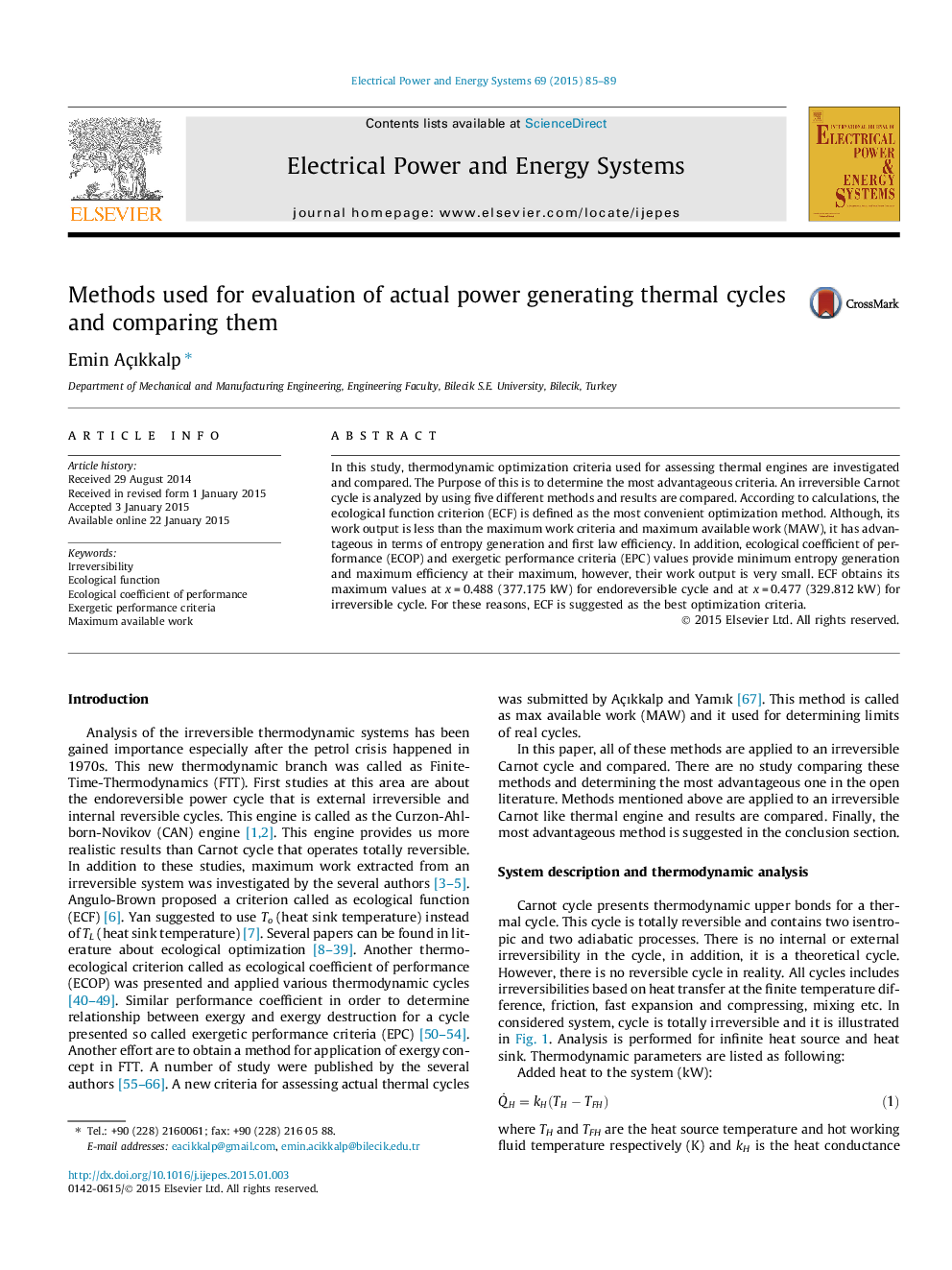| Article ID | Journal | Published Year | Pages | File Type |
|---|---|---|---|---|
| 399513 | International Journal of Electrical Power & Energy Systems | 2015 | 5 Pages |
•Methods used for evaluation of irreversible Carnot power engines are investigated.•All methods compared each other.•Numerical results are presented and discussed.•It is concluded that ECF is the most effective method.
In this study, thermodynamic optimization criteria used for assessing thermal engines are investigated and compared. The Purpose of this is to determine the most advantageous criteria. An irreversible Carnot cycle is analyzed by using five different methods and results are compared. According to calculations, the ecological function criterion (ECF) is defined as the most convenient optimization method. Although, its work output is less than the maximum work criteria and maximum available work (MAW), it has advantageous in terms of entropy generation and first law efficiency. In addition, ecological coefficient of performance (ECOP) and exergetic performance criteria (EPC) values provide minimum entropy generation and maximum efficiency at their maximum, however, their work output is very small. ECF obtains its maximum values at x = 0.488 (377.175 kW) for endoreversible cycle and at x = 0.477 (329.812 kW) for irreversible cycle. For these reasons, ECF is suggested as the best optimization criteria.
